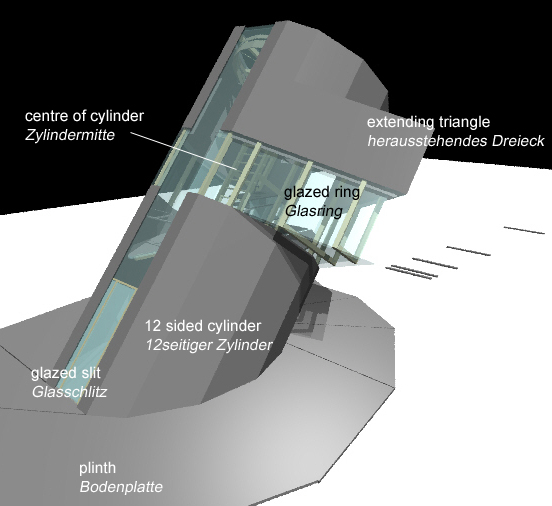Brexit: How It's Hampering UK Luxury Exports To The EU

Table of Contents
Increased Bureaucracy and Customs Delays
The post-Brexit trading environment has introduced significant administrative hurdles for UK luxury exporters. Navigating these complexities is impacting businesses' ability to efficiently and profitably reach EU markets.
Complex Customs Procedures
Exporting luxury goods to the EU now involves significantly more paperwork, declarations, and inspections. This translates to:
- Longer processing times: Goods spend longer at customs, leading to delays in delivery and potential stockouts.
- Increased costs: Businesses incur additional expenses for customs agents, brokerage fees, and compliance services.
- Risk of spoilage: Perishable luxury goods, such as high-end chocolates or certain beauty products, risk spoilage during extended customs delays. This leads to significant financial losses.
- Examples include delays for high-end fashion collections arriving late for seasonal launches or bespoke jewelry held up at customs, causing missed deadlines for important events.
Non-Tariff Barriers
Beyond customs procedures, new non-tariff barriers further complicate the export process. These include:
- Sanitary and Phytosanitary (SPS) regulations: Stricter regulations regarding food safety and animal health add complexity and cost to exporting luxury food and beverage items.
- Rules of origin: Demonstrating that a product originates from the UK to qualify for preferential treatment under trade agreements is now a time-consuming and complex process.
- Labelling requirements: Meeting EU labeling regulations for luxury goods, particularly those related to ingredients or product composition, requires significant administrative effort and compliance costs.
- For example, a luxury British gin producer must now meticulously document the origin of every botanical used to comply with EU rules of origin, adding significant time and cost to their exporting process.
Increased Costs and Reduced Profitability
Brexit has significantly increased the cost of exporting luxury goods to the EU, squeezing profit margins and reducing competitiveness.
Tariffs and Duties
New tariffs and duties on certain luxury goods have raised the price for exporters and consumers.
- Quantifiable cost increases: Depending on the product category and value, tariffs can add several percentage points to the cost of goods, reducing profitability and price competitiveness.
- Impact on pricing and consumer demand: Increased prices for luxury goods in the EU can lead to decreased consumer demand, impacting sales and overall revenue.
- For instance, a 10% tariff on high-end leather goods significantly reduces the profit margin for UK exporters compared to their EU-based competitors.
Freight and Logistics Costs
The additional logistics associated with border checks and increased customs procedures contribute to higher transport costs.
- Increased freight costs: Higher transportation expenses due to delays, additional documentation, and the need for specialized logistics providers to handle new customs procedures.
- Higher insurance costs: The increased risk of delays and potential damage to goods leads to higher insurance premiums.
- Increased warehousing costs: Goods may spend more time in transit and require additional warehousing, increasing overall costs.
- The increased complexity of transporting high-value, fragile luxury goods across the border results in significantly higher transportation insurance premiums.
Loss of Market Access and Reduced Competitiveness
Brexit has negatively impacted the market access and competitiveness of UK luxury exporters in the EU.
Market Share Decline
UK luxury brands have experienced a noticeable decline in their market share within the EU since Brexit.
- Statistical evidence of market share losses: Market research data showing the decline in sales of UK luxury goods in the EU compared to pre-Brexit levels.
- Reasons for market share losses: Increased prices, reduced product availability, and increased competition from EU-based luxury brands are likely contributing factors.
- Impact on brand reputation and customer loyalty: Delays and higher prices can damage brand reputation and negatively impact customer loyalty.
Difficulties in Reaching Consumers
Reaching EU consumers has become more challenging due to logistical hurdles and regulatory differences.
- E-commerce challenges: Increased customs complexities and delivery delays make it difficult for UK luxury brands to operate effectively in the EU's e-commerce market.
- Direct-to-consumer sales: Direct shipping to EU customers is more costly and complex, impacting profitability and competitiveness.
- Strategic partnerships: UK luxury brands are increasingly exploring strategic partnerships with EU-based distributors and logistics providers to overcome these challenges.
Conclusion
Brexit has presented significant challenges for UK luxury exporters, resulting in increased bureaucracy, higher costs, and reduced market access. The increased customs procedures, non-tariff barriers, tariffs, and logistical complexities have negatively impacted profitability and competitiveness within the EU market. Understanding the complexities of Brexit and its impact on UK luxury exports is crucial. Learn more about navigating these challenges and advocating for policies that support the continued success of British luxury brands in the EU. Support UK luxury export growth post-Brexit by demanding policy changes to alleviate these barriers and foster a more favorable trading environment.

Featured Posts
-
 The Power Of Sound Musics Unifying Perimeter
May 21, 2025
The Power Of Sound Musics Unifying Perimeter
May 21, 2025 -
 Ancelotti Nin Yerine Klopp Real Madrid Icin Dogru Secim Mi
May 21, 2025
Ancelotti Nin Yerine Klopp Real Madrid Icin Dogru Secim Mi
May 21, 2025 -
 Jellystone Pinata Smashling Leads Teletoon Spring Streaming Lineup
May 21, 2025
Jellystone Pinata Smashling Leads Teletoon Spring Streaming Lineup
May 21, 2025 -
 Prediksi Juara Liga Inggris 2024 2025 Akankah Liverpool Menang
May 21, 2025
Prediksi Juara Liga Inggris 2024 2025 Akankah Liverpool Menang
May 21, 2025 -
 The Goldbergs A Nostalgic Look Back At 1980s Family Life
May 21, 2025
The Goldbergs A Nostalgic Look Back At 1980s Family Life
May 21, 2025
Latest Posts
-
 Rtl Group Achieving Streaming Profitability Analysis And Outlook
May 21, 2025
Rtl Group Achieving Streaming Profitability Analysis And Outlook
May 21, 2025 -
 Is Mainzs Henriksen The Next Big Managerial Talent After Klopp And Tuchel
May 21, 2025
Is Mainzs Henriksen The Next Big Managerial Talent After Klopp And Tuchel
May 21, 2025 -
 Kaellmanin Ja Hoskosen Sopimus Puolan Seuran Kanssa Paeaettyy
May 21, 2025
Kaellmanin Ja Hoskosen Sopimus Puolan Seuran Kanssa Paeaettyy
May 21, 2025 -
 Endgueltige Formgebung Durch Architektin Vor Ort Bestimmt
May 21, 2025
Endgueltige Formgebung Durch Architektin Vor Ort Bestimmt
May 21, 2025 -
 Henriksen Mainzs Hope To Continue Klopp And Tuchels Legacy
May 21, 2025
Henriksen Mainzs Hope To Continue Klopp And Tuchels Legacy
May 21, 2025
